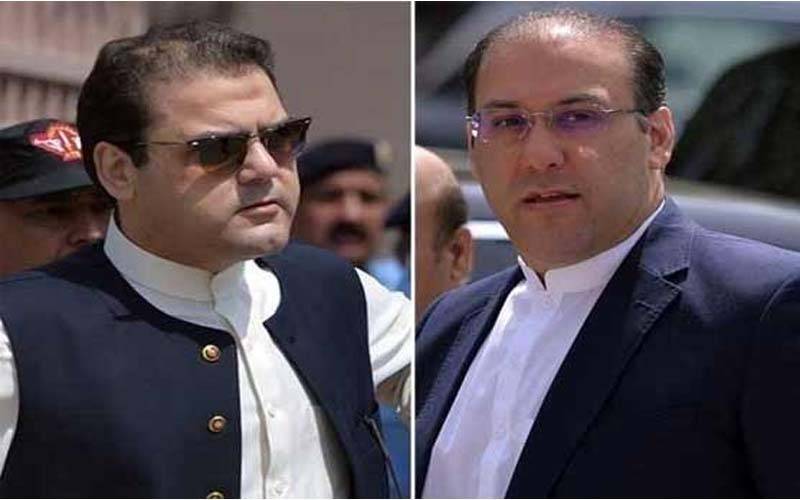Islamabad (Web Desk): An accountability court in Islamabad on Thursday suspended the perpetual arrest warrants issued against Pakistan Muslim League-Nawaz (PML-N) supremo and former premier Nawaz Sharif’s sons, Hassan Nawaz and Hussain Nawaz in in the Al-Azizia, Flagship and Avenfield cases.
Accountability court judge Nasir Javed Rana announced the reserved verdict on Thursday, revealing that the perpetual arrest warrants for the accused have been suspended until March 14.
Earlier in 2018, the accountability court had declared Hassan and Hussain Nawaz as proclaimed offenders and had issued non-bailable perpetual arrest warrants against them.
The court had previously noted that during the years 1993, 1995, and 1996 when the Avenfield flats were allegedly purchased through offshore companies in London, when Hassan, Hussain, and Maryam Nawaz were not financially sound.
Hassan and Hussain's lawyers, Qazi Misbah-ul-Hassan and Rana Irfan advocate, had appeared in the court before the decision was reserved.
During the hearing, Barrister Misbah contended before the court that Hassan and Hussain both were given interim bail but still perpetual arrest warrants were issued against them.
He told the judge that there were five accused persons in the Avenfield reference, of which three were sentenced by an accountability court and later acquitted by the Islamabad High Court (IHC).
The lawyer said his clients Hassan and Hussain both wanted to return to Pakistan on March 12 and appear before court. Hence, the arrest warrants should be suspended, he prayed.
He added that the purpose of the warrants was to bring back the accused persons to the court.
At this, NAB prosecutor Sohail Arif argued before the court that the perpetual arrest warrants could not be revoked without a court appearance. However, he said if Hassan and Hussain wanted to appear in court, an opportunity should be given to them.
The court had reserved its verdict after hearing arguments of both the sides before issuing its verdict later.


